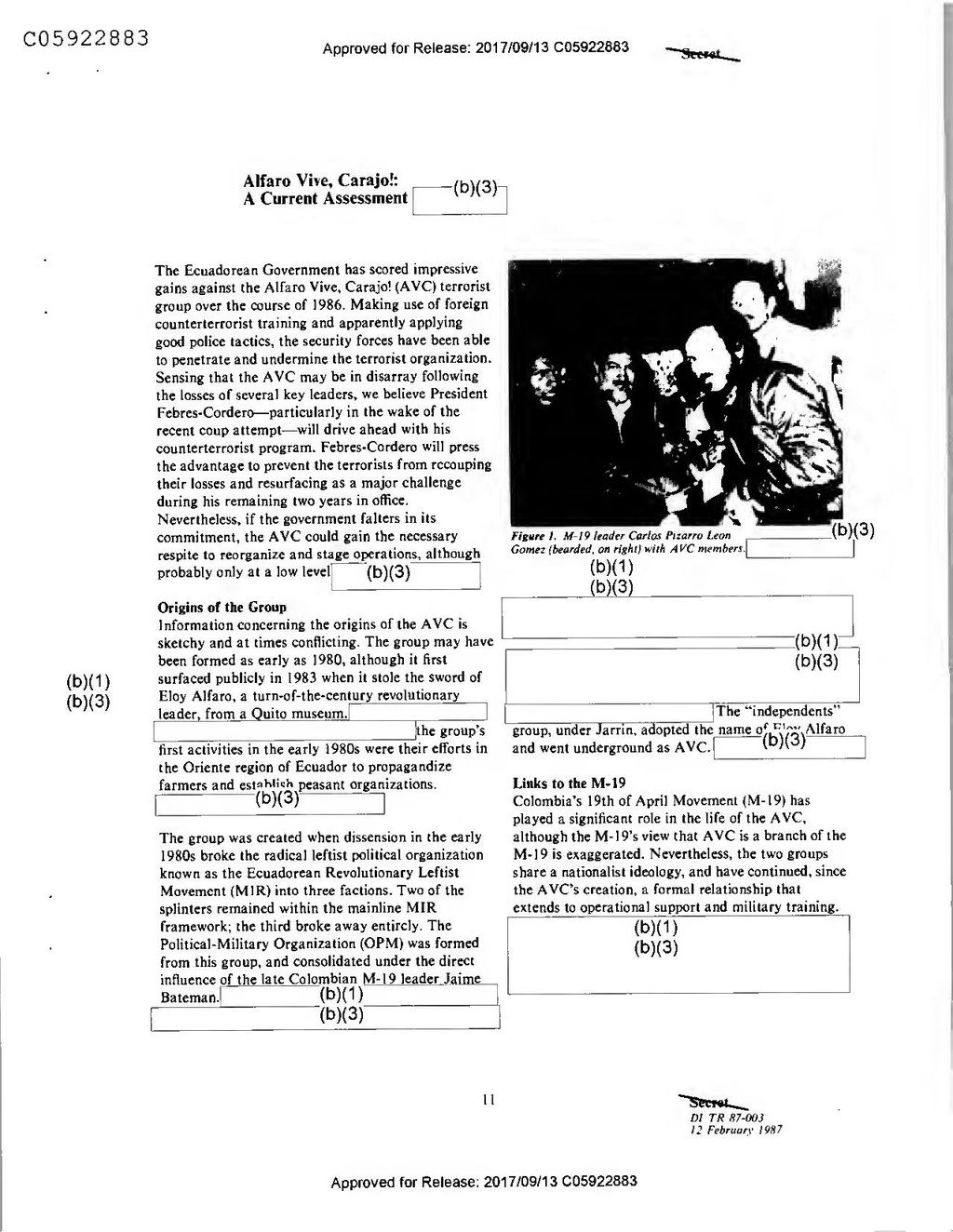Alfaro Vive, Carajo!: A Current Assessment
(b)(3)The Ecuadorean Government has scored impressive gains against the Alfaro Vive, Carajo! (AVC) terrorist group over the course of 1986. Making use of foreign counterterrorist training and apparently applying good police tactics, the security forces have been able to penetrate and undermine the terrorist organization. Sensing that the AVC may be in disarray following the losses of several key leaders, we believe President Febres-Cordero-particularly in the wake of the recent coup attempt—will drive ahead with his counterterrorist program. Febres-Cordero will press the advantage to prevent the terrorists from rccouping their losses and resurfacing as a major challenge during his remaining two years in office. Nevertheless, if the government falters in its commitment, the AVC could gain the necessary respite to reorganize and stage operations, although probably only at a low level (b)(3)(b)(3)
IFigure 1. M-19 leader Carlos Pizarro Leon Gomez (bearded, on right) with AVC members.
(b)(1) (b)(3)
(b)(1) (b)(3)
)(1) )(3)
Origins of the Group Information concerning the origins of the AVC is sketchy and at times conflicting. The group may have been formed as early as 1980, although it first surfaced publicly in 1983 when it stole the sword of Eloy Alfaro, a turn-of-the-century revolutionary leader, from a Quito museum.
the group's first activities in the early 1980s were their efforts in the Oriente region of Ecuador to propagandize farmers and esta hlich peasant organizations.
(b)(3)
The “independents" group, under Jarrin, adopted the name of Flo Alfaro and went underground as AVC.
(b)(3)
The group was created when dissension in the early 1980s broke the radical leftist political organization known as the Ecuadorean Revolutionary Leftist Movement (MIR) into three factions. Two of the splinters remained within the mainline MIR framework; the third broke away entircly. The Political-Military Organization (OPM) was formed from this group, and consolidated under the direct influence of the late
Colombian M-19 leader Jaime Bateman.
(b)(1) (b)(3)
Links to the M-19 Colombia's 19th of April Movement (M-19) has played a significant role in the life of the AVC, although the M-19's view that AVC is a branch of the M-19 is exaggerated. Nevertheless, the two groups share a nationalist ideology, and have continued, since the AVC's creation, a formal relationship that extends to operational support and military training.
(b)(1) (b)(3)
11
Secret DI TR 87-003 12 February 1987
Approved for Release: 2017/09/13 C05922883
